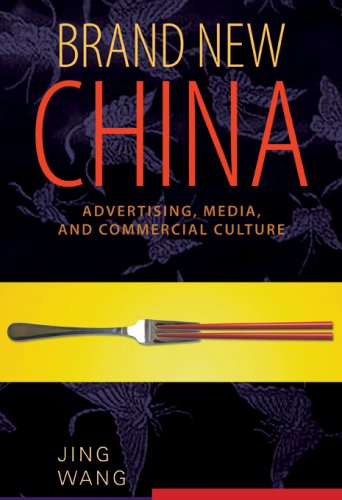I recently returned from Hong Kong and China, and if anything is immediately prevalent in the latter is that second and third tier cities are going to begin creating a real middle class. China has the environmental factors for growth and wealth that are reminiscent of a late 1940s United States of America. High levels of control over foreign debt, a large amount of foreign and domestic manufacturing and a population ready to prosper after long periods of arduous work. In the next decade China will become the new battleground for global brands to woo the middle class citizens. Those daring enough to engage this new market must now start learning mandarin (or hiring people who can speak it), find suitable local partners and begin learning the unique nature of impacting a communist-led society with a 21st century consumerist mentality. Wo hen mang.

Brand New China offers invaluable lessons in how ad agencies were baptized in doing business in China; a great read.
Apple's World Wide Developer's Conference (WWDC) 2010 started this week, and in true Steve Jobs fashion, the newest member of the "i" family; the iPhone 4 was just "officially" leaked. Jobs poked fun at the early prototype of the iPhone 4 that was leaked in Vietnam a month earlier, a true test of PR resilience on their part. Keeping in mind that it's a developer's conference first and a technology announcement second, the keynote was all business. The key is to keep developers adding to the current library of 225,000 or so apps to the tens of millions of Apple users with registered credit cards. The real star of the show was the new "iAd Network" interface.
If Apple's creativity wasn't innovative enough, they've essentially introduced a new advertising platform to the mix (expected to do $250 million in 2010). It introduces a new revenue source for free or cheap aps, and most importantly offers a new medium that consumers are excited to interact with due to its novelty. Interactivity has been a hallmark of portable technology for the last few years, however it's new ground for incorporating marcom into mobile phones. As smartphones rapidly become the de facto choice for people to get on the internet, it's not a surprise that intrusive banner ads (that disrupt the mobile experience with a pop-up web browser) were quickly replaced.

The iPhone 4: it really does look fantastic.
The new challenge for marketers and especially innovative ad agencies with bold targets to engage consumers in new ways is to properly use the medium. As the iAd Network becomes more popular the novelty will quickly decrease, requiring more advanced usage of the platform. to keep garnering attention. This problem has been encountered and conquered before in other mediums, but never before has this challenged required the heavy use of software development. Photographers, videographers and graphic designers are all standard tools of the trade. It wouldn't surprise me at all if software developers and UI designers quickly become demanded of the top agencies with entire departments emerging overnight.

And lastly, Fast Company in their most recent June 2010 edition named their 100 most creative people in business for this year. Few people may make it number 100 Andrey Ternovskiy, the 17 year old student from Moscow who invented the wildly popular (and controversial) Chatroulette. Most will simply glance to who got the top seat. This year's winner is Lady Gaga, who may only be considered slightly less controversial than Chatroulette.
Her business acumens are incredible, and are widely praised by top execs from DDB, HP and Polaroid, proving the music superstars can be more than just stereotypical celebrities. Lady Gaga falls into a small class of musicians turned business people that include Jay-Z and Kanye West whose close interaction and success in attracting the young generation's attention has proven useful in selling clothing, electronics and cosmetics. They are some of today's best brand builders not because of what their name represents, but rather because they live, breathe and interact with their target consumers every single day. Celebrities are now cashing in on more than just endorsing deals, but taking to the marketplace themselves and reaping the rewards.

The beats by dr. dre have become a huge hit in the personal audio segment; one that is typically devoid of strong celebrity branding.




